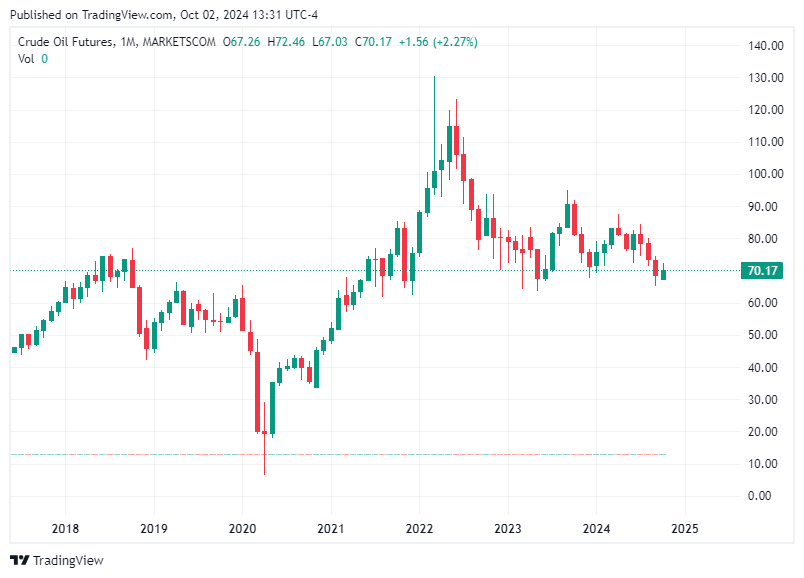Saudi Minister Issues Warning Over Oil Prices Dropping To $50
The Saudi Minister's Warning: $50 Oil Price and Its Consequences.

Disclaimer: The following article is intended for informational purposes only and should not be considered as financial advice. Readers are encouraged to consult with financial experts for advice tailored to their specific circumstances.
Recent developments in the global oil market have brought renewed attention to the intricate dynamics within the Organization of the Petroleum Exporting Countries and its allies, collectively known as OPEC+. At the heart of these concerns is a major warning issued by Saudi Energy Minister Prince Abdulaziz bin Salman. He cautioned that oil prices could potentially drop to $50 per barrel if OPEC+ members continue to exceed their agreed production limits, thus raising the specter of a price war.
Historical Context of OPEC+ Production Agreements
Saudi Arabia, as OPEC's leading producer, plays a pivotal role in steering the production policies of the alliance. The recent warning by Prince Abdulaziz bin Salman is perceived not only as a cautionary note but also a veiled threat to those members who fail to adhere to their production quotas. OPEC+ was established to stabilize the oil market by coordinating output among member countries, thereby preventing excessive volatility in oil prices. However, the persistent overproduction by certain members, notably Iraq and Kazakhstan, has undermined these efforts.
The warning about a potential drop to $50 per barrel highlights the delicate balance between supply and demand within the oil market. It also points out the risks associated with non-compliance by OPEC+ members, which could trigger a price war, similar to the one witnessed during the early months of the COVID-19 pandemic in 2020. During that period, Saudi Arabia and Russia were embroiled in a battle for market share amidst plummeting demand, leading to a sharp decline in oil prices. OPEC+ was formed in 2016, expanding the traditional OPEC cartel to include other major oil producers like Russia. This expanded coalition was tasked with managing global oil supply to influence prices positively. The group's ability to reach consensus on production cuts has been instrumental in stabilizing markets, especially during periods of economic uncertainty.
Historically, the agreements have not always been smooth. Compliance has been a recurring issue, with some members exceeding their production quotas for various reasons, including economic pressures and domestic needs. Saudi Arabia, in particular, has often shouldered the burden of compensating for others' overproduction by voluntarily reducing its own output. The Kingdom's recent willingness to endure short-term revenue losses to regain market share suggests a shift in approach, potentially abandoning its unofficial $100 oil price target for a more market-share-focused strategy.
Economic Effects of a Price War
Should the warning materialize into actions leading to a price war, the global economic effects could be profound. A significant drop in oil prices to $50 per barrel would likely have a ripple effect across various sectors and economies:
Oil-Dependent Economies: Countries heavily reliant on oil revenues, such as those in the Middle East and parts of Africa, could face fiscal deficits and economic instability. Lower oil prices would reduce government revenues, impacting public spending and potentially leading to economic contraction.
Energy Sector Impact: Major oil companies, particularly those involved in high-cost extraction methods like deep-sea drilling or tar sands, may find such activities financially unviable. This could lead to reduced investment in exploration and production, affecting jobs and technological advancements in the sector.
Consumer Benefits: Conversely, lower oil prices generally translate to reduced fuel costs for consumers, benefiting industries reliant on transportation and logistics. Cheaper energy costs can also lower manufacturing expenses, potentially leading to lower prices for goods and services.
Global Trade: Fluctuating oil prices can influence global trade balances. Oil-importing countries might benefit from lower import bills, improving their trade deficits, while exporting countries could see adverse effects.
Renewable Energy Investments: Prolonged low oil prices might slow the transition to renewable energy sources as the economic incentive to shift away from fossil fuels diminishes. However, it could also spur innovation in efficiency and cost-reduction in renewables to remain competitive.
The Road Ahead for OPEC+
The path forward for OPEC+ involves navigating these complex challenges while maintaining cohesion among its members. The alliance must balance individual national interests with the collective goal of market stability. Saudi Arabia's warning serves as a reminder of the potential consequences of non-compliance and the delicate nature of oil market dynamics.
As the global economy continues to recover from the pandemic, the demand for oil is expected to rise gradually. OPEC+ will need to adjust its strategies accordingly, ensuring that production levels align with market needs to avoid oversupply and price volatility.
The Saudi Energy Minister's warning about potential $50 oil prices serves as a pivotal moment for OPEC+ and the global oil market. It highlights the ongoing challenges of managing production agreements and the economic risks associated with a price war. Understanding these dynamics is crucial for stakeholders within the energy sector and beyond, as they navigate the uncertainties of the global market landscape.
Disclaimer: This article is for informational purposes only and should not be considered as financial advice. Readers should consult with financial professionals for advice specific to their individual circumstances.
We are working endlessly to provide free insights on the stock market every day, and greatly appreciate those who are paid members supporting the development of the Stock Region mobile application. Stock Region offers daily stock and option signals, watchlists, earnings reports, technical and fundamental analysis reports, virtual meetings, learning opportunities, analyst upgrades and downgrades, catalyst reports, in-person events, and access to our private network of investors for paid members as an addition to being an early investor in Stock Region. We recommend all readers to urgently activate their membership before reaching full member capacity (500) to be eligible for the upcoming revenue distribution program. Memberships now available at https://stockregion.net


